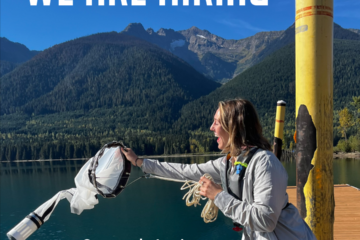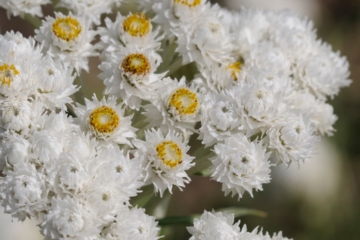Yellow Flag Iris- Removal and Knowledge Sharing
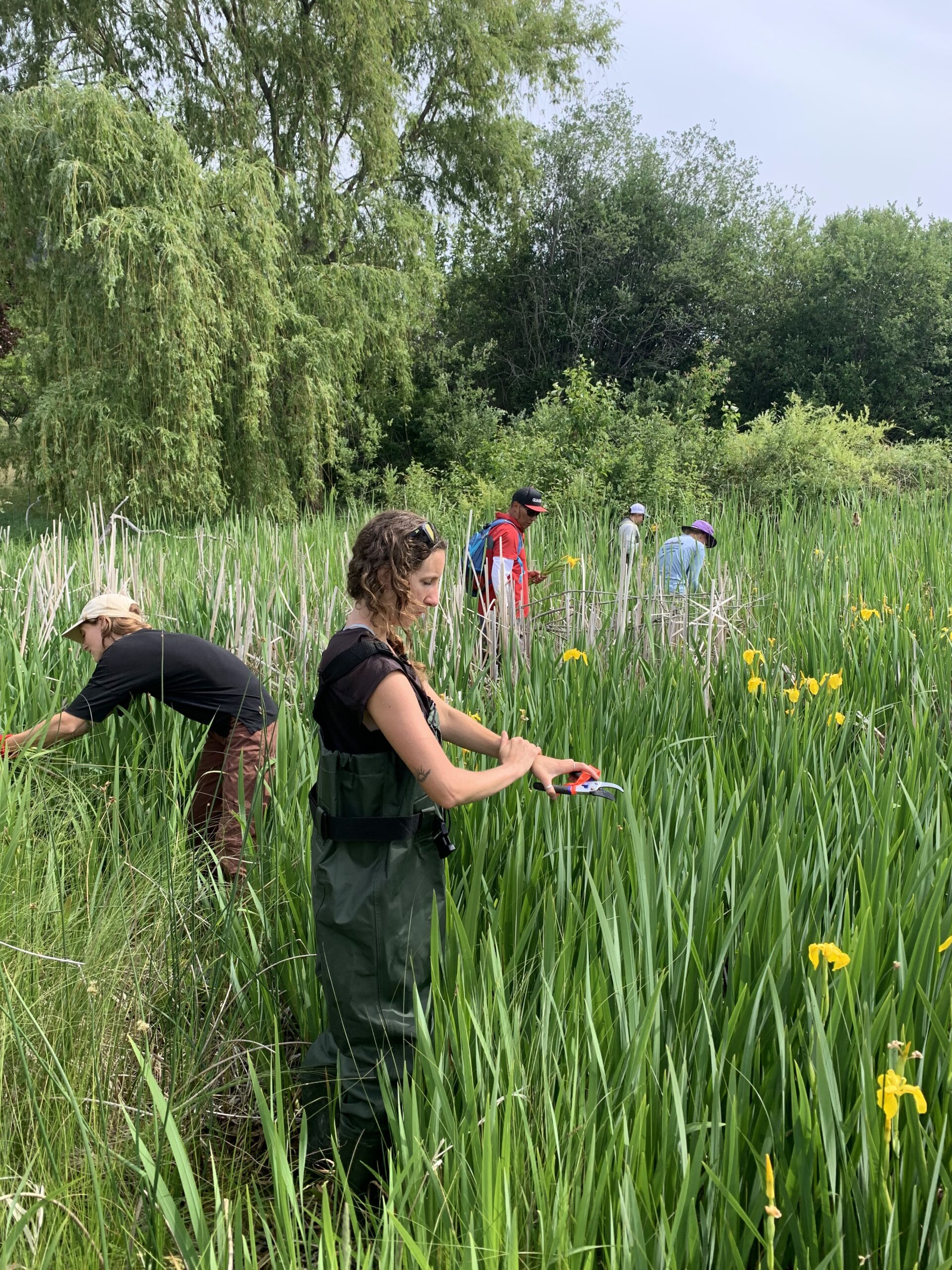
Lara Phillips from the Invasive Species Council of BC, CSISS Staff, Skw’lax Guardians and, Shuswap Trail Alliance staff and volunteers join forces to collaborate and tackle Yellow Flag Iris at Little White Lake. (Photo: CSISS)
The Yellow Flag Iris Weed Pull Day held at Little White Lake was a great community event where various organizations joined forces to protect and enhance local ecosystems. The Skw’lax Guardian Program and the Columbia Shuswap Invasive Species Society spearheaded the initiative, with support from the Shuswap Trails Alliance and the Invasive Species Society of British Columbia. The day included the opportunity to foster collaboration and knowledge exchange and focused on Indigenous Knowledge sharing.
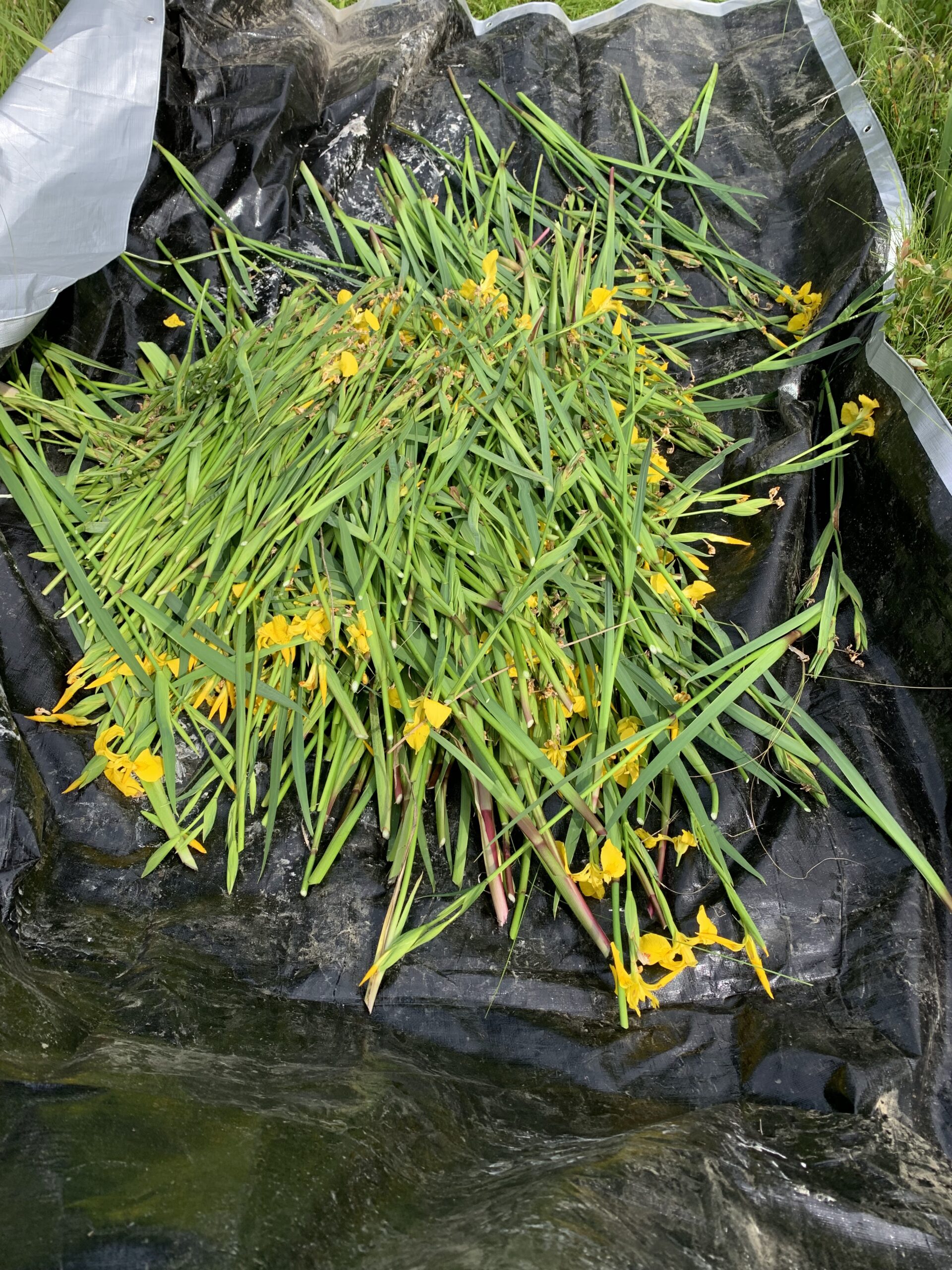
Deadheaded- Yellow Flag Iris
Carmen Massey, the experienced host of Yellow Flag Iris removal days, extended a warm welcome to all participants. Her dedication to organizing these events for many years laid the foundation for a successful day. Attendees seized the opportunity to share their knowledge, experiences, and unique approaches to tackling invasive species. Engaging discussions ensued, allowing everyone to define their understanding of invasive species and gain insights into the Yellow Flag Iris mechanical treatment. The day was not without its share of muddy misadventures on land and on canoes to tackle additional Yellow Flag Iris patches across the lake.
During a well-deserved lunch break, the event took a culturally enriching turn with the inclusion of Secwepemc Knowledge Keepers, John Jules and Kenthen Thomas. They shared traditional wisdom regarding plant uses, including insights on cattails, a highly valuable plant to Secwepemc. Cattails are the native species threatened by the invasion of the Yellow Flag Iris. Connecting people and their relationship with plants deepened the participants’ understanding of the local flora and highlighted the significance of cultural heritage in environmental preservation.
Removing these Invasive from the Little White Lake landscape exemplified the power of collaboration and community engagement in protecting and enhancing ecosystems. It showcased the commitment of various organizations and individuals toward environmental stewardship and cultural awareness. Through this joint effort, attendees made progress in managing invasive species and fostered connections that will continue to benefit the region’s natural resources.
A second Yellow Flag Iris event is planned on August 4th at Phillips Lake to review benthic barrier management techniques with researcher Dr. Catherine Tarasoff, the Invasive Species Council of BC and the Turtle Valley community group. Find out more about the event here: https://columbiashuswapinvasives.org/csiss-agrowest-consulting-collaborate-for-benthic-barrier-workshop-for-yellow-flag-iris-treatment/
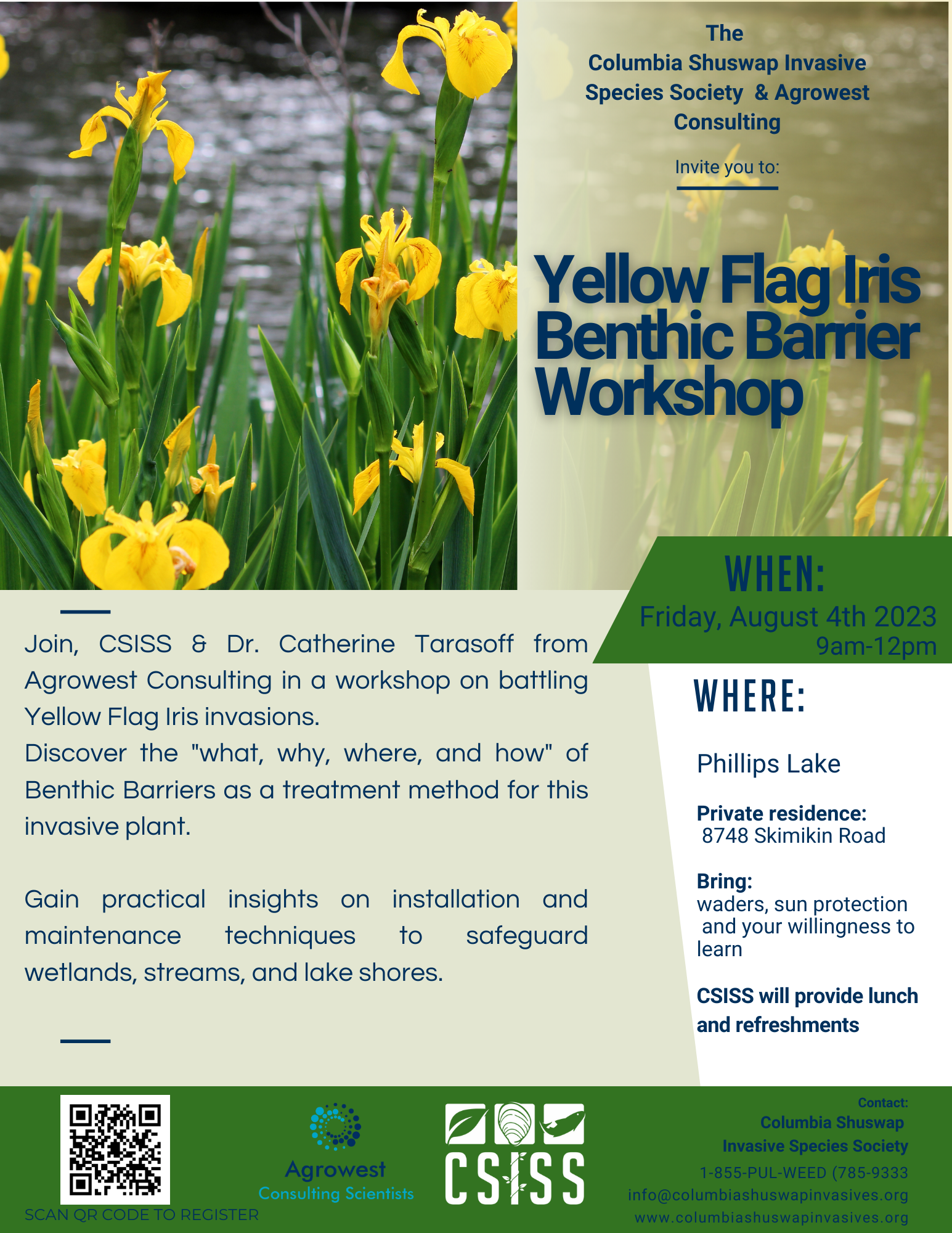
Members of the public are encouraged to report any suspected invasive species using the provincial “Report Invasives BC” smartphone application (available for download from www.gov.bc.ca/invasive-species) or, if invasive mussels are suspected, to call the Report All Poachers and Polluters hotline at 1-877-952-7277.
The Columbia Shuswap Invasive Species Society is a non-profit organization dedicated to the prevention, management and reduction of invasive species in the Columbia Shuswap Regional District. CSISS is thankful for the generous support of the Habitat Conservation Trust Foundation, Shuswap Watershed Council, Columbia Basin Trust, the Columbia Shuswap Regional District and the Province of B.C.
To learn more about invasive species in the Columbia Shuswap region, please visit: http://www.columbiashuswapinvasives.org
For media inquiries or more information, please contact: info@columbiashuswapinvasivespecies.org
